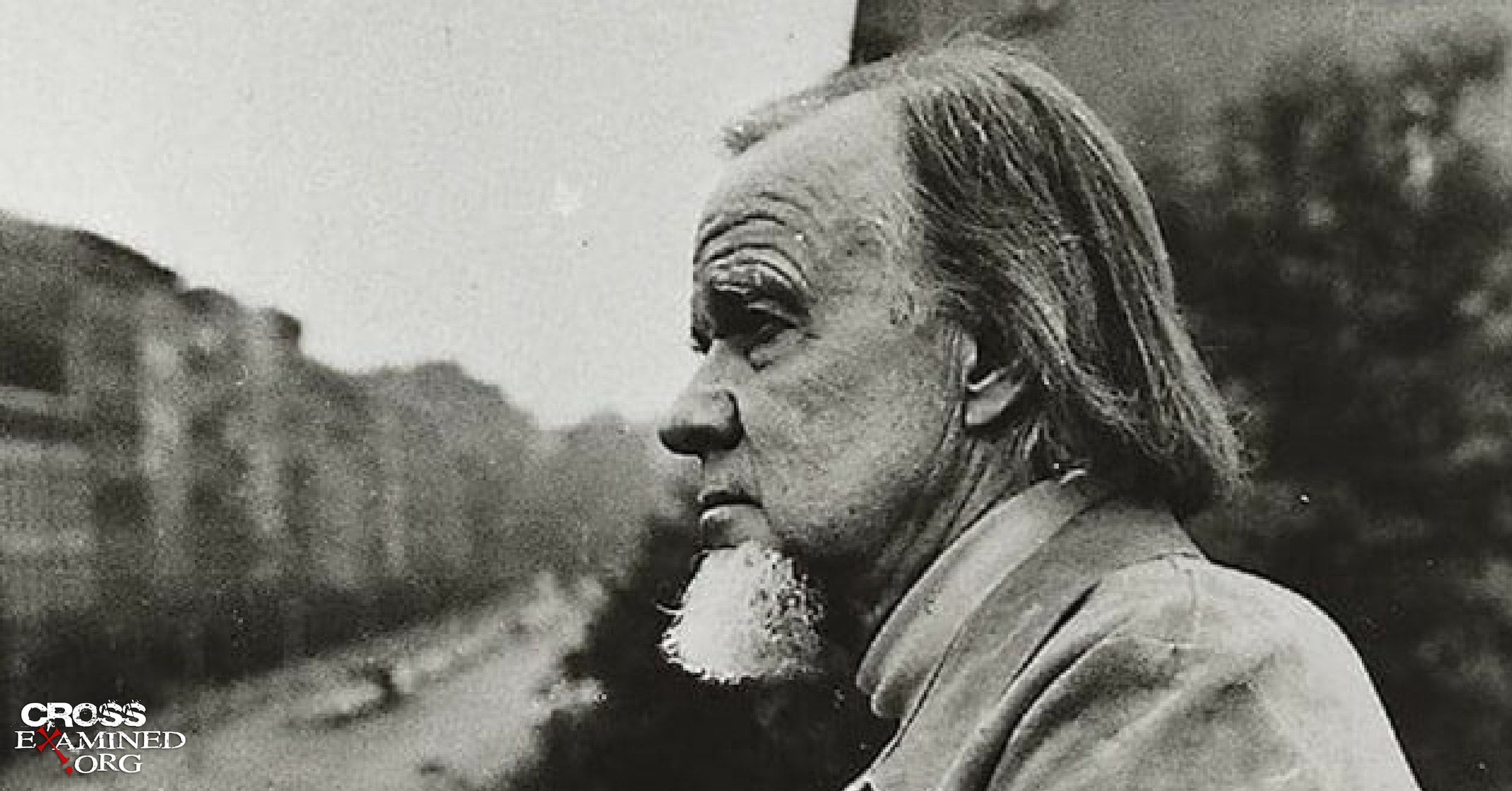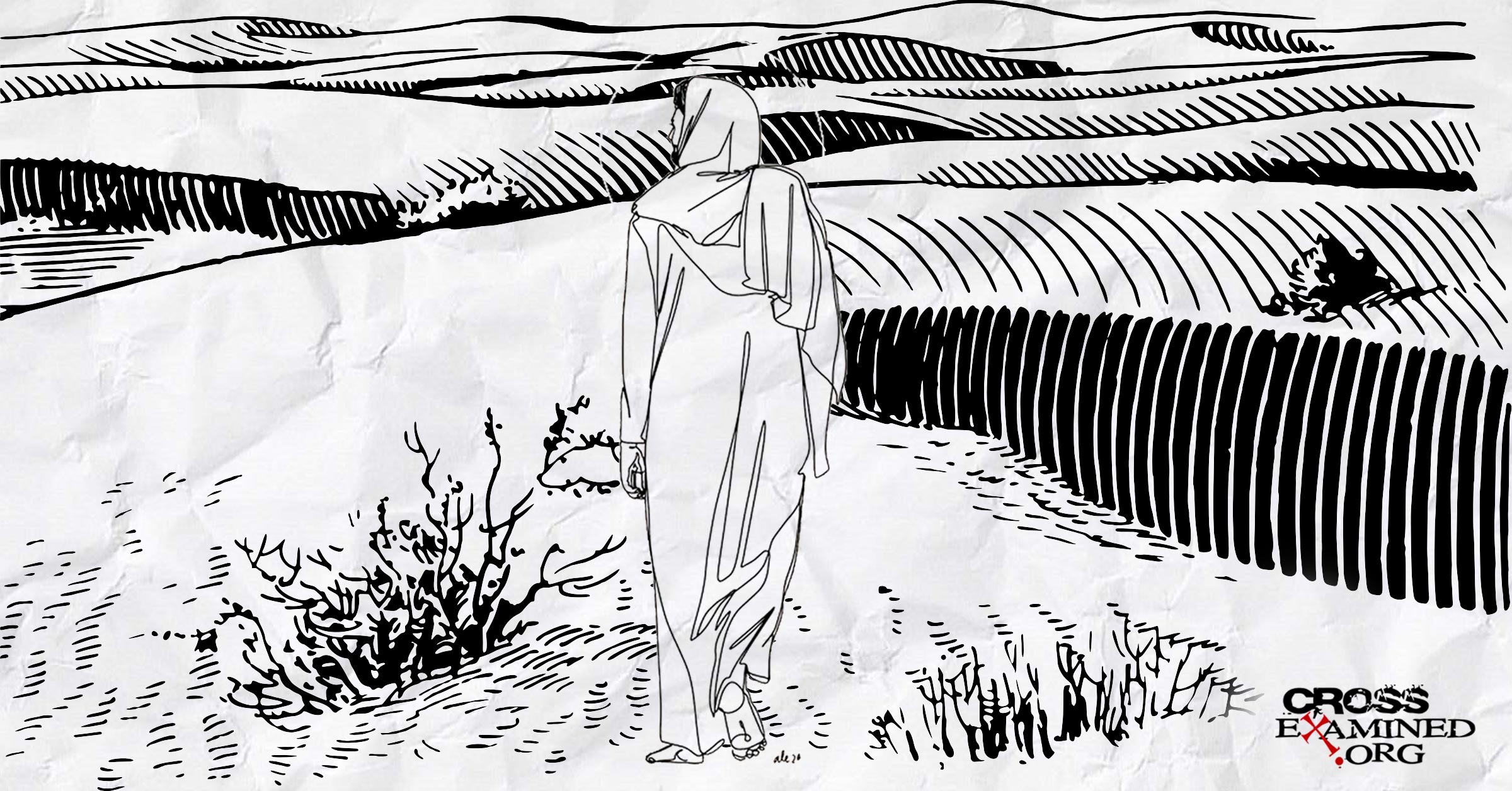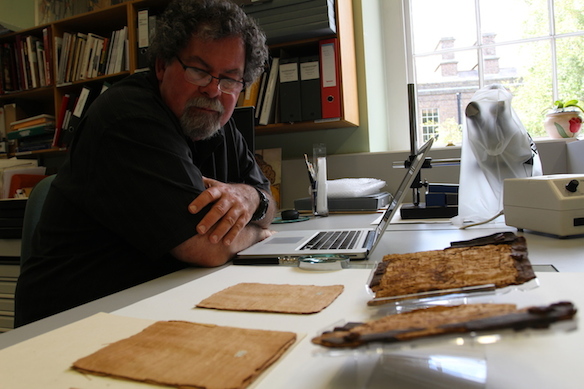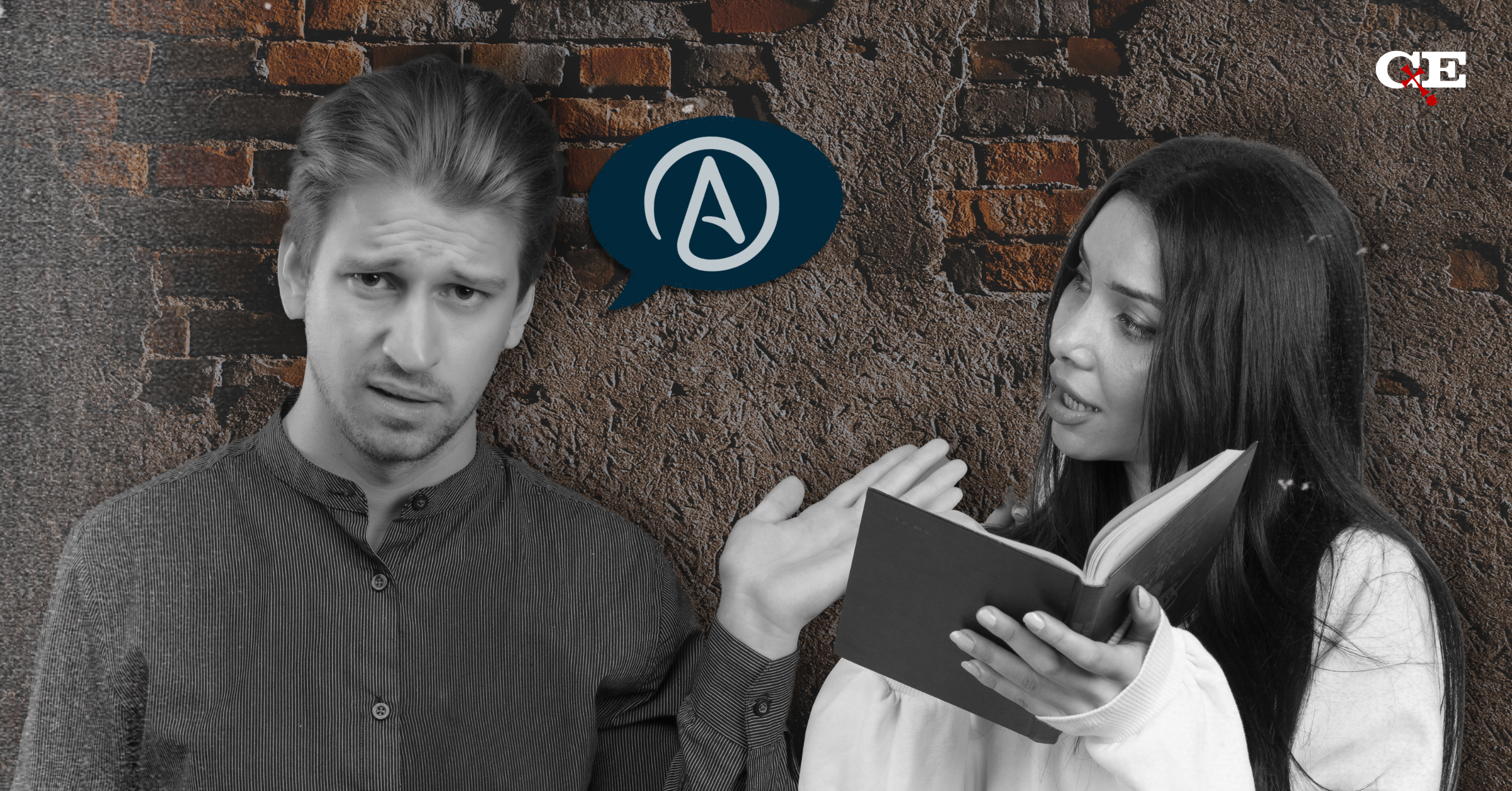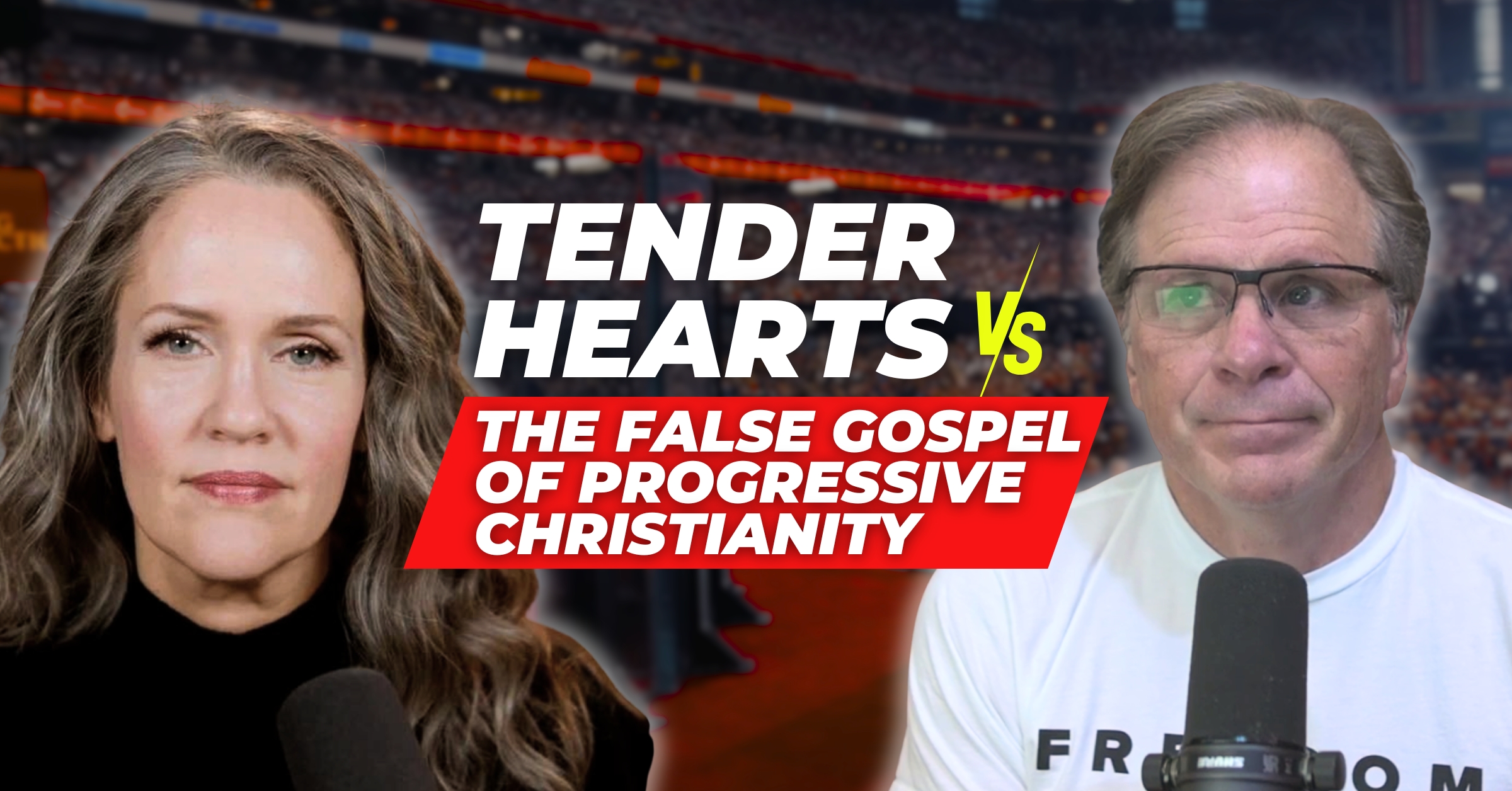A Case Against Theocracy in 20 Points
If you watched the Memorial Service for Charlie Kirk, and reports indicate about a third of America did just that, then you saw a lot of people singing songs to God, Christians sermonizing, and political figures politicizing. Church and State were both on full display. This wasn’t a funeral, mind you. Nor was it a church service or a political rally. It was kind of all three, which made it a unique event in recent history. Some of the speakers shared the Gospel, giving an invitation for salvation, and calling people to follow-Christ with everything they’ve got, for their own sake, the sake of their families, and the sake of the country. There were some excellent Christian messages showing a principled Christian engagement in the political sphere in way that are winsome, faithful, and bode well for America’s future.
There were other speakers too.
A Rorschach Test
I mention the Charlie Kirk memorial service not simply because it’s timely, and Charlie Kirk left an indelible mark on America, but because that event was a kind of Rorschach test. You may be familiar with the old ink-blot tests where people interpret the images differently depending on their psychology. That’s called the Rorschach tests. Well, depending on one’s politics, people are liable to see Charlie Kirk’s memorial service in radically different ways.
Christian conservatives, and “right-wingers,” in large part, spoke highly of the service as a fitting memorial to a Christ-centered political activist who would want nothing more than for all attendees to put Christ first in their own lives, then family, and then politics third in line. In other words, “faith, family, and freedom.” That was how I personally saw the event.
But, many progressives and “left-wingers” were characterized the service as a celebration of Christian Nationalism. And more than a few voices went further to describe it as white-tribalism, Naziism, Fascism, and a Klan rally.[1]
What do you mean by Christian Nationalism?
A key issue in both interpretations is how should we understand the relationship between church and state? Many of the left use “Christian nationalism” as a big blanketing insult, without much clarity about what they mean. Do they mean “patriotic Christians”? Do they mean “people who vote with their Christian principles?” Do they mean politician-and-pastor conspiracy to give preferential treatment to Christian churches? Do they mean a blurring between church and state? Do they mean replacing the constitution with the Bible? Do they mean a full-blown theocracy where the church is the state?
The only way to know what people mean these days by “Christian Nationalism” is to ask them. The phrase is used broadly in recent years, as it’s a common “smear” from the left, and a somewhat common boast on the right. But it’s not clear that either side is using the phrase the same way.
When we peel away layers of confusion, there is, a genuine sense of Christian Nationalism, that some folks on the right endorse. This could be a Catholic Christian nationalism, perhaps modeled on the Vatican – an actual, historic, theocracy. Or it could be a Reformed brand of Christian Nationalism known as Theonomy. Or it could even be a Charismatic brand of Christian nationalism known as Dominionism, or Kingdom Now Theology, or “The Seven Mountain Mandate.”
I won’t try to parse out these different camps here, but rather focus my response on the concept of theocracy. When people approach their spheres of Christianity and politics with the intent to fuse the institutions of church and state, they are not just engaging in Christian nationalism, but advocating for theocracy. Christian nationalism and theocracy don’t have to be synonyms, but they can be. Again, you never know what a person means by “Christian nationalism” unless you ask them. From what I can tell, political pundits on the left are too concerned about Christian theocracy, but on the right, people aren’t concerned enough.
What do you mean by “Theocracy”?
When I say “theocracy” I’m talking about a church-state fusion. Instead of the first amendment, with its religious freedom, and distinct institutions of church and state, theocracy unites the two so that the state becomes an arm of the church. And the powers of the state are wielded for church purposes, whatever those might be. Clear signs of theocracy would be if a nation replaces their charter or constitution with their religious laws (Sharia, the Old Testament, the Ten Commandments), or people have to be religious leaders before they can qualify to serve in government. In theocracy, the church’s role in society is fulfilled through the government and the government’s role in society is fulfilled through the church. Britannica defines theocracy this way:
Theocracy: government by divine guidance or by officials who are regarded as divinely guided. In many theocracies, government leaders are members of the clergy, and the state’s legal system is based on religious law. Theocratic rule was typical of early civilizations. The Enlightenment marked the end of theocracy in most Western countries. Contemporary examples of theocracies include Saudi Arabia, Iran, and the Vatican. See also church and state; sacred kingship.
To be clear, not all forms of Christian nationalism would qualify as a Church-State fusion (theocracy), but some forms of Christian nationalism are exactly that. As we move forward from the Charlie Kirk assassination, and that landmark memorial service, there are some great opportunities ahead for revival in our churches, political engagement on school campuses, and cultural renewal in society. We might start seeing a lot of church folks engaging in politics for the first time. Likewise, we may start seeing some politically activists going back to church for the first time in ages. Hopefully, they will all have the restraint, wisdom, and discernment to guard against any clumsy fusion of the two institutions. But realistically, we should be prepared, just in case political pundit starts calling to replace the constitution with the Bible, or some self-appointed apostle says God ordained them to be the next president, or they replace their town charter with Sharia law, or they start requiring that all public officials have a Christian ministry license.
We can be patriotic, we can be Christian, we can even be patriotic Christians. But we have good reason to reject theocracy. Some things are better without much mingling, such as ice cream and cheeseburgers, or rap music and country. Church and state are both good, but if you start mistaking them for each other, they’re both worse for it. Here are twenty reasons why Christians, engaging in politics, should refrain from theocracy.
Twenty Reasons to Reject Theocracy
1. The church works better through persuasion than coercion.
- The powers of the church corrupt far too easily to be trusted with the weighty authority of the state.
- By formally separating the institutions of church and state – as we have with the first amendment and freedom of religion – We have an authority and power basis to protect the state from church overreach…
- … And to protect the church from the state overreach.
- Christians clamoring for a theocracy is akin to Ancient Israel clamoring for a king (1 Samuel 8:6) – if the church did its job right, there wouldn’t be a need for a new theocracy. Clamoring for that new theocratic government is itself evidence that the church hasn’t been doing its job right. And so, it’s not in a good position to start dictating new world orders for the government. A theocratic surge from the church isn’t very promising or trustworthy since the church is still deeply morally compromised, largely unrepentant, and out of alignment (not all Christians, but a substantial number).
- Theocracy would mean the intrusion of state into the church, virtually guaranteeing the church would be largely reduced to a weapon/instrument of the state rather than remaining the independent body of Christ, to do as Christ wills regardless of state interests (1 Cor. 12:12-14).
- The New Testament doesn’t clearly advocate for or approve of a church-state until Christ returns (Revelation 22)
- The Old Testament has a theocracy – Ancient Israel – as part of the Mosaic covenant. But that civil standard no longer applies under the covenant of grace (Heb. 8:7-13).
- The abject failures of Ancient Israelite theocracy is a warning against such efforts in the future. Israel had God working miracles to lead them in Holy Wars punishing the sex-cult child sacrificing idolatries of Canaan. And yet Israel still failed time and again, eventually getting conquered and exiled multiple times. Israel never ultimately fulfilling their side of the Mosaic covenant – obey and thrive, or disobey and be crushed.
- Freedom of religion, in the first amendment, include Jews, deists, and atheists from the start. It was not just freedom to choose one’s Christian denomination.
- History testifies that theocracy is pretty bad for both church and state (most of the Crusades, the Spanish inquisition, Catholic-Protestant strife, etc. Etc.).
- Church has enough corruption of its own to deal with already, it doesn’t need to ally itself with and invite more corruption by marrying the State. Church and state can be “friends” without getting married (i.e., Christians can serve in public office, public policies can be informed by Christian values, Christian heritage can be acknowledged, all without mistaking the church for the state or vice versa).
- If the standards of the church meld with the powers of the state, we have strong evidence from history to suggest that heresy and idolatry would become illegal thus eliminating freedom of religion in its 1st amendment form. At that point, the power of government would/could be leveraged by the church to “force” conversion and “force” repentance. In reality, “forced” conversion is likely to be fake conversion, or worse, a root of bitterness generating to disenchantment, deconversion, and stark opposition.
- Governments invariably get a lot of blood on their hands, literally, through unjust punishments, ill-conceived wars, and abuses of power. If the church were to claim the power of government, it would invite that culpability along with the higher standard of judgment that God has for the church (1 Peter 4:17; James 3:1; Matt 11:21).
- Following the model of Christ in his 1st coming, the church has a better chance of maintaining its integrity and fulfilling its God-given commission (Matthew 28:18-20) not by arresting, punishing, and killing for the cause of Christ but by living and dying for the faith, as Christ did. In other words, the church should be leery of having anyone’s blood on their hands as it’s the blood of the martyrs, not the blood of infidels that seeds the church.
- As Lord Acton famously said, “Power corrupts, and absolute power corrupts absolutely.” If the church and the state were merged that would be a monopolistic fusion of power akin to Amazon and Google merging. That sounds like a special-interest merger and does not bode well for society.
- Permitting an analogy, the church could do better as Gandalf than Frodo, not wielding the ring of power directly (theocracy) but rather by wielding its own, supernatural power, for the purpose of protecting that earthly power from ambitious folks who would seize it for their own interests. The church can help protect small government, akin to Frodo, from power-hunger hoards (akin to Boromir, Gollum, Orks, etc.) who want to use it though they can’t help but abuse it.
Signs of Hope and Concern
Regarding the Charlie Kirk memorial service, maybe both sides are right. The left-wing pundits have some reason to fear a theocratic surge under the banner of Christian nationalism. That is a real possibility, even if the perspective from the left might not distinguish well between different brands of “Christian nationalism” or understand how “faith, family, and freedom” is just an order of priorities not an institutional fusion.[2] I don’t know how “big” that possibility might be, but from what I’ve seen among a Christian nationalist voices in the left, there I somes reason for concern. Meanwhile, folks on the right have reason to be hopeful. TPUSA has had 100,000+ requests to start chapters at K-12 schools, colleges, and communities. And the memorial service itself had thousands of people responding to the altar call. Videos are surfacing of people coming to church (or back to church) for the first time. From a Christian standpoint, it’s hard to imagine the country making a drastic change for the better without revival. Politics and public works are downstream from heart-change, and that means people getting right with Christ. We have great reason to be hopeful and even excited about the political future of the United Sates, but we should also make sure to aim well, guarding against theocracy. Yes, get out the vote, run for office, run for school board, campaign, promote, dialogue and discuss. Support policies that offer the best hope of justice and flourishing across society. But, don’t mistake the church and state for each other. Both have a bad history of encroaching on each other, and making both worse for it. Don’t assume that the Church can wield the ring of power without getting devoured by it.
References:
[1] For example, see: https://www.commondreams.org/opinion/charlie-kirk-memorial
[2] There’s also a tendency from some on the left to treat the first amendment-based concept of “separation of Church and state” like it means a firm exclusion of religious influence in the public sector, i.e., universal anti-religious discrimination. Under that idea, one has to illicitly assume that “non-religion” is the neutral position when in reality, “non-religion” and “religion” are both equally protected positions under the first amendment. Prioritizing non-religion in the public square wouldn’t just be an abuse of the 1st amendment, but an explicit violation of it. The 1st amendment protects against that sort of prejudice. See, Thomas Jefferson, “Letter to the Danbury Baptists,” 1802.
Recommended Resources:
Legislating Morality (DVD Set), (PowerPoint download), (PowerPoint CD), (MP3 Set) and (DVD mp4 Download Set)
Does Jesus Trump Your Politics by Dr. Frank Turek (mp4 download and DVD)
The Case for Christian Activism (MP3 Set), (DVD Set), and (mp4 Download Set) by Frank Turek
Correct, Not Politically Correct: About Same-Sex Marriage and Transgenderism 2023 Edition by Dr. Frank Turek Book
Dr. John D. Ferrer is a speaker and content creator with Crossexamined. He’s also a graduate from the very first class of Crossexamined Instructors Academy. Having earned degrees from Southern Evangelical Seminary (MDiv) and Southwestern Baptist Theological Seminary (ThM, PhD), he’s now active in the pro-life community and in his home church in Pella Iowa. When he’s not helping his wife Hillary Ferrer with her ministry Mama Bear Apologetics, you can usually find John writing, researching, and teaching cultural apologetics.



